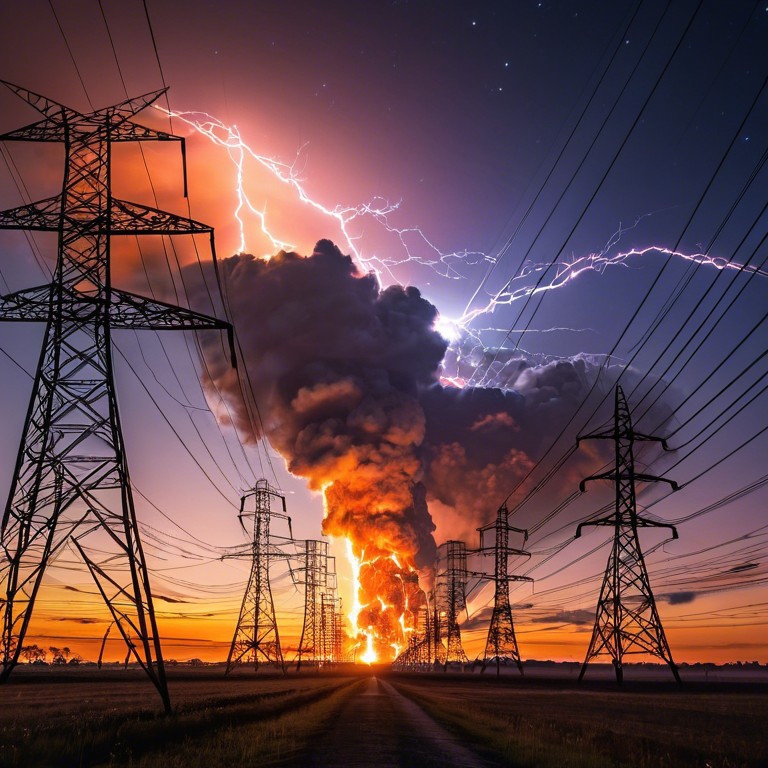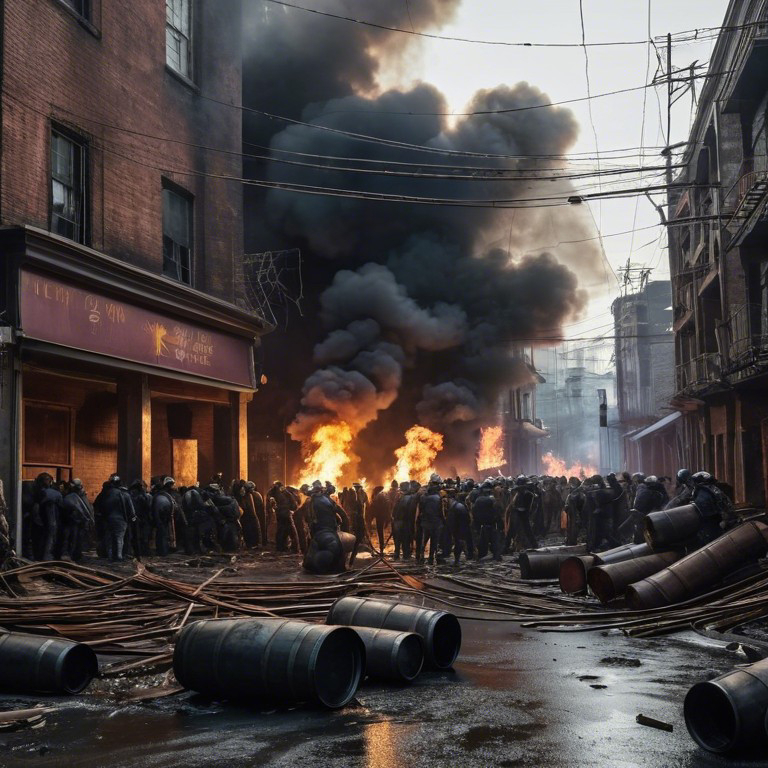Lights Out! by NeoWinstonSmith
Lights Out!
Lights Out!
The Power Grid's down.
I'm about to wild out!
X4
The grid’s gone dark, no lights in the streets,
City’s silent, no more electric beats.
Power’s out, but the mind stays lit,
We’re back to basics, gotta adapt and commit.
No screens, no feeds, no digital noise,
Just the raw reality, stripped of our toys.
Gotta think quick, survival mode’s on,
Reinvent life from dusk 'til dawn.
When the power’s down, we’re on our own,
No signals, no Wi-Fi, just the unknown.
Lights out, but we’ll find our way,
In the darkness, we’ll make a new day.
Got the gear packed, ready for the shift,
In this blackout, survival’s the gift.
Water’s a must, and the food’s on lock,
Gotta stay sharp, tick-tock, tick-tock.
Neighbors become allies, in this fight for the light,
We’re the new watchmen, no end in sight.
But in the struggle, there’s a chance to be free,
Find the strength in the dark, the real you and me.
When the power’s down, we’re on our own,
No signals, no Wi-Fi, just the unknown.
Lights out, but we’ll find our way,
In the darkness, we’ll make a new day.
So here’s to the outage, to the challenge and strife,
In the loss of power, we find new life.
When the grid comes back, and the lights blaze bright,
We’ll remember the dark, and the strength in the fight.
Lights Out!
Lights Out!
The Power Grid's down.
I'm about to wild out!
X4
Strengthening the Power Grid: How Citizens Can Advocate for a More Resilient Infrastructure
Introduction
The power grid, the backbone of modern society, is critical for everything from lighting our homes to powering essential services. Yet, it remains highly vulnerable to a range of threats, including natural disasters, cyberattacks, and infrastructure failures. With increasing concerns over grid stability, it’s crucial for citizens to understand these vulnerabilities and actively advocate for improvements.
Understanding Power Grid Vulnerabilities
1. Aging Infrastructure: Many components of the power grid are outdated and in need of significant upgrades. This aging infrastructure is prone to failure and inefficiency, making it susceptible to both physical and cyber threats.
2. Cybersecurity Threats: As the grid becomes more interconnected, it faces increased risks from cyberattacks. Hackers targeting grid control systems can cause widespread disruptions and damage.
3. Natural Disasters: Extreme weather events, such as hurricanes, floods, and wildfires, can severely impact the power grid. These disasters can lead to prolonged outages and significant damage to critical infrastructure.
4. Supply Chain Issues: The power grid relies on a complex supply chain for components and maintenance. Disruptions in this supply chain can delay repairs and upgrades, exacerbating vulnerabilities.
Actions Citizens Can Take
1. Raise Awareness: Start by educating yourself and others about the vulnerabilities of the power grid. Use social media, community meetings, and local events to spread information and generate discussion about the need for improved grid resilience.
2. Engage with Local Officials: Contact your local representatives and government officials to express your concerns about grid vulnerabilities. Advocate for increased funding and support for infrastructure upgrades and cybersecurity measures.
3. Support Policy Initiatives: Back policies and legislation that aim to strengthen the power grid. Support efforts that promote investment in modernizing infrastructure, enhancing cybersecurity, and preparing for natural disasters.
4. Participate in Community Preparedness: Encourage your community to develop emergency preparedness plans. Promote initiatives that focus on local resilience, such as backup power solutions and community response teams.
5. Get Involved with Advocacy Groups: Join or support organizations dedicated to improving energy infrastructure and cybersecurity. These groups often work on policy advocacy, public education, and research to address power grid vulnerabilities.
6. Stay Informed: Keep up-to-date with developments in power grid technology and policy. Understanding current challenges and solutions will help you better advocate for necessary changes and improvements.
Conclusion
The power grid is an essential component of modern life, but its vulnerabilities pose significant risks. By raising awareness, engaging with officials, supporting policy initiatives, participating in community preparedness, and getting involved with advocacy groups, citizens can play a crucial role in advocating for a more resilient and secure power grid. Together, we can work towards a future where our energy infrastructure is robust, reliable, and capable of withstanding the challenges of today and tomorrow.



